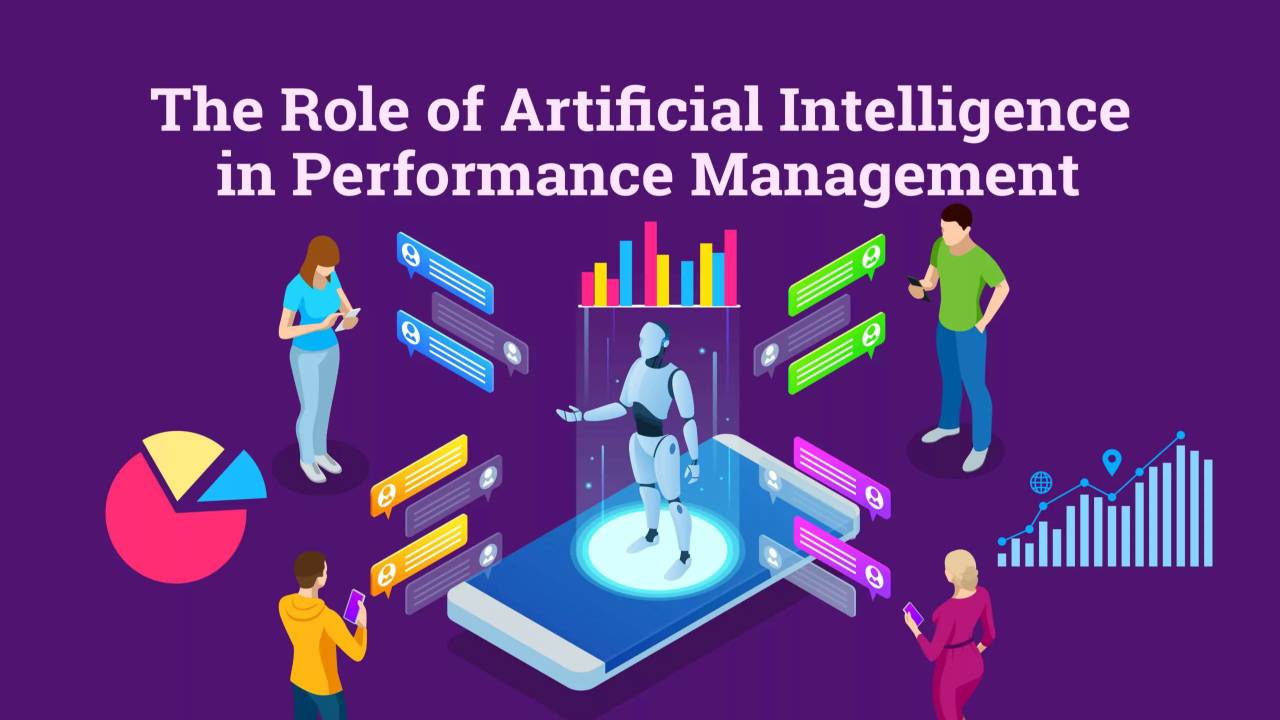The Role of Artificial Intelligence in Performance Management
Jun 09, 2025
In the age of digital transformation, Artificial Intelligence (AI) is revolutionizing nearly every aspect of the business world. Among its many applications, AI has a significant impact on performance management, helping organizations optimize their workforce and drive efficiency. This article explores how AI influences performance management, enhances manpower efficiency, the tools companies can use internally, and concludes with key recommendations for leveraging AI’s full potential.
- Impact of AI on Performance Management
AI’s ability to process vast amounts of data in real-time provides a powerful mechanism for enhancing performance management. Traditionally, performance management relied on subjective assessments and periodic reviews, often leading to biases and missed opportunities. AI changes this dynamic by:
- Providing real-time feedback: AI systems can continuously monitor performance metrics, giving employees and managers immediate insights into areas that need improvement.
- Personalizing performance evaluations: By analyzing data trends, AI can identify individual strengths and weaknesses, enabling managers to tailor development plans more effectively.
- Reducing biases: AI-driven evaluations minimize human subjectivity and provide a more objective view of employee performance.
- Predicting future performance: Through predictive analytics, AI can identify employees at risk of disengagement or burnout, enabling proactive interventions.
These capabilities result in a more transparent, data-driven performance management process that not only boosts individual accountability but also improves organizational alignment.
- How Companies Can Use AI to Increase Manpower Efficiency
AI’s potential to increase manpower efficiency lies in its ability to automate repetitive tasks, streamline processes, and provide actionable insights. Here’s how companies can harness AI to enhance their workforce’s productivity:
- Automating routine tasks: AI-powered chatbots, virtual assistants, and robotic process automation (RPA) can handle administrative tasks such as scheduling, data entry, and reporting, freeing up employees for higher-value work.
- Enhancing decision-making: AI can analyze operational data to identify inefficiencies and suggest process improvements, enabling faster and more informed decision-making.
- Optimizing workforce allocation: AI can predict workload fluctuations and suggest dynamic staffing solutions, ensuring optimal resource utilization.
- Supporting continuous learning: AI can tailor training programs based on employees’ skills gaps and career aspirations, fostering continuous development and adaptability.
These approaches not only reduce operational bottlenecks but also empower employees to focus on tasks that require creativity, critical thinking, and collaboration.
- Tools Companies Can Use to Leverage AI Internally
For companies looking to implement AI internally, several tools and platforms can make a substantial difference:
- Performance management systems: Tools like Workday, SAP SuccessFactors, and Lattice integrate AI to provide continuous feedback and performance tracking.
- HR analytics platforms: Solutions such as Visier and Tableau use AI to uncover workforce trends and support data-driven HR decisions.
- AI-powered communication tools: Platforms like Microsoft Teams and Slack incorporate AI to streamline collaboration and automate routine communications.
- Robotic Process Automation (RPA): Platforms like UiPath, Automation Anywhere, and Blue Prism enable companies to automate repetitive workflows, boosting efficiency.
- Custom AI solutions: Companies with specific needs can leverage AI development platforms like Google Cloud AI, IBM Watson, and Amazon SageMaker to build tailored AI models.
By investing in these tools, companies can create an ecosystem where AI not only augments employee performance but also drives innovation and operational agility.
- Final Summary and Recommendations
AI’s transformative role in performance management and manpower efficiency is undeniable. By providing data-driven insights, reducing biases, and automating repetitive tasks, AI empowers organizations to become more agile and competitive. However, successful AI adoption requires a thoughtful approach:
- Start with a clear strategy: Define specific goals for AI integration that align with business objectives.
- Foster a culture of data-driven decision-making: Equip employees with the skills to interpret and act on AI-generated insights.
- Ensure ethical AI use: Address concerns around data privacy, algorithmic bias, and transparency to build trust and compliance.
- Invest in continuous learning: Support employees in developing the skills needed to thrive in an AI-augmented workplace.
In conclusion, AI is not just a technology upgrade; it’s a strategic enabler that can reshape how companies manage performance and workforce efficiency. By embracing AI with the right tools and mindset, organizations can unlock new levels of productivity, employee satisfaction, and business growth.
Dr. Rachad Baroudi - CEO
Coaching Services
Let us help you fast track your strategy and performance project. Our advisor can save you potential problems. Book an hourly coaching session today...
Stay connected with our events and updates!
Join our mailing list to receive the latest events and updates from our team

